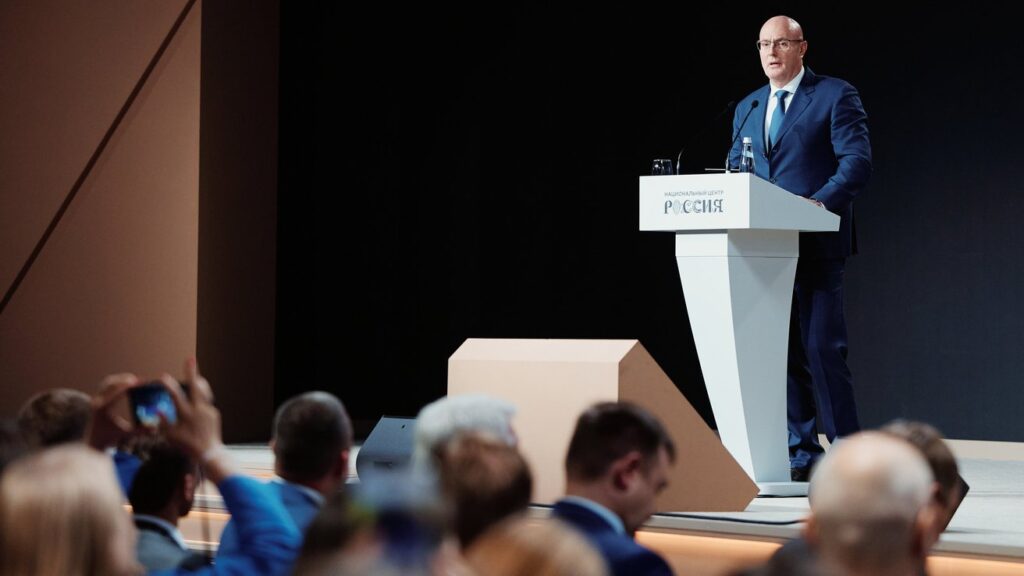MOSCOW (Realist English). Deputy Prime Minister Dmitry Chernyshenko addressed the annual board meeting of Rosmolodezh (the Federal Agency for Youth Affairs) on Tuesday, outlining the results of Russia’s youth policy in 2024 and the roadmap for 2025. The session brought together officials from federal ministries, regional governments, and civic organizations involved in youth-focused initiatives.
Chernyshenko identified the adoption of the National Youth Policy Strategy until 2030 as the central milestone of the year.
“Youth policy holds a special place in the system of state governance. Its goal is to unlock each individual’s potential, support talent development, and raise socially responsible, patriotic citizens,” he said. “This is a national objective set by President Vladimir Putin.”
According to recent surveys cited by the Deputy Prime Minister, 94% of Russian youth feel proud to be citizens of the country, while 86% believe in their ability to succeed and self-actualize in Russia.
A detailed implementation plan for the strategy, adopted at a government meeting chaired by Prime Minister Mikhail Mishustin, includes around 90 initiatives developed by 30 ministries and agencies. These cover areas such as support for young families to encourage birth rates and promoting healthy lifestyles among youth.
Expanding infrastructure and participation
In 2024, 18 year-round youth education centres were opened across the country, 11 of them with presidential participation. Nearly all of Russia’s 87 regions have established dedicated youth policy bodies, and the “Movement of the First” — a nationwide patriotic and developmental youth organization — now includes a quarter of all young Russians.
Chernyshenko also emphasized the growing involvement of veterans of the Special Military Operation in youth policy initiatives, as well as Russia’s expanding international youth diplomacy, citing the World Youth Festival held earlier this year as a major success.
Volunteerism continues to grow. The number of registered users on the national platform Dobro.RF increased by 1.5 million in just six months, he reported.
National youth project gains traction
Grigory Gurov, head of Rosmolodezh, delivered the agency’s annual report and presented the outlook for 2025.
“This year, we began implementing the national project ‘Youth and Children’ at the President’s instruction,” Gurov said. “It spans all spheres of life — from education and public spaces to personal development and support for youth-led initiatives.”
He stressed that success is not measured by the number of events, but by real change in attitudes:
“Today, 86% of young people believe in their future in Russia, and 94% feel pride in the country. These are the foundations of a cohesive national identity.”
Gurov praised the collaboration between Rosmolodezh, federal ministries, civic organizations, and educational institutions.
“Together, we are building a unified educational space where every young person can realize their dreams — here, in the country of opportunity,” he said.
With the formalization of its 2030 youth strategy and the launch of a national project dedicated to young people, Russia is reshaping its state approach to youth development. By combining patriotic education, infrastructure investment, and mentorship from veterans, the government aims to build a generation aligned with national goals. The challenge will be ensuring these efforts remain inclusive, effective — and credible in the eyes of young Russians themselves.
